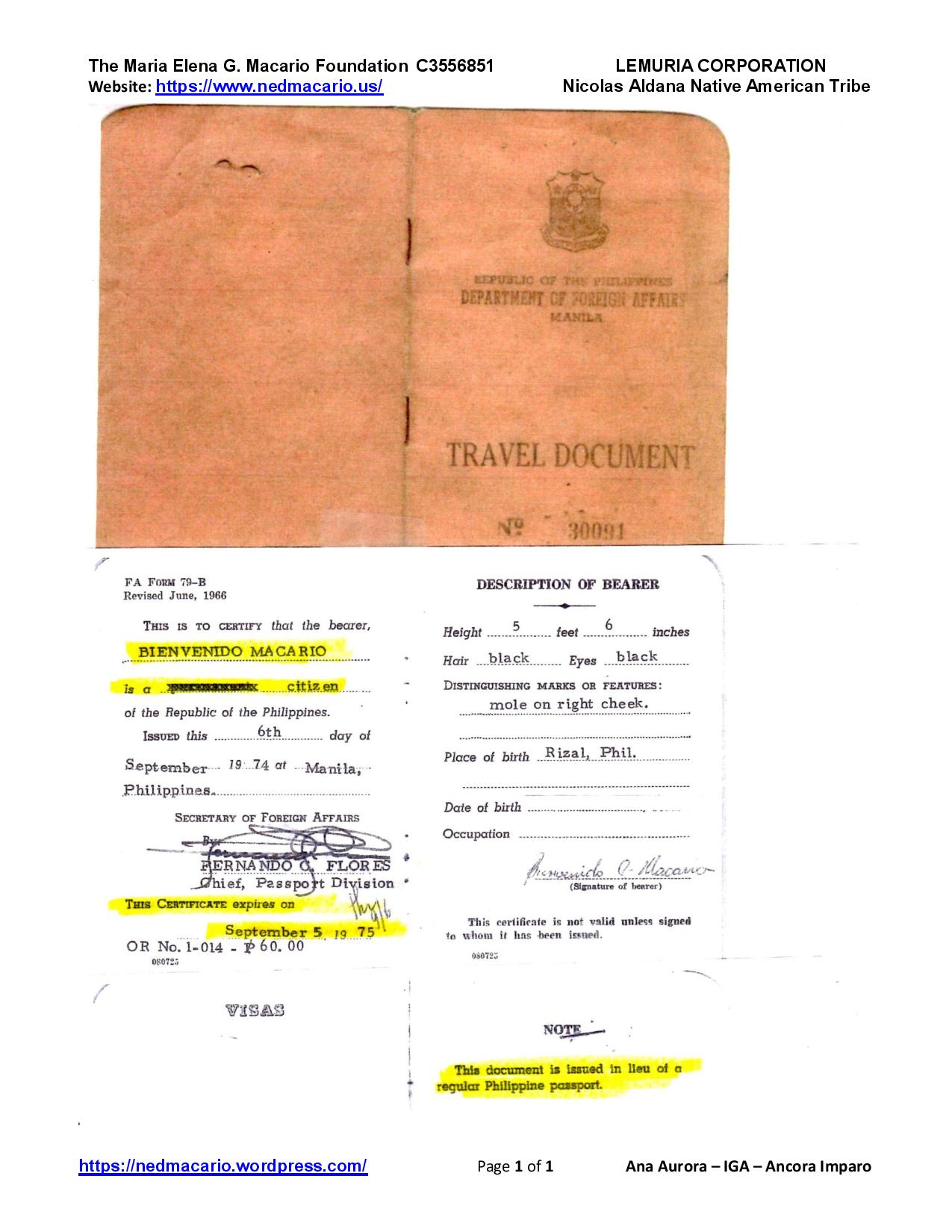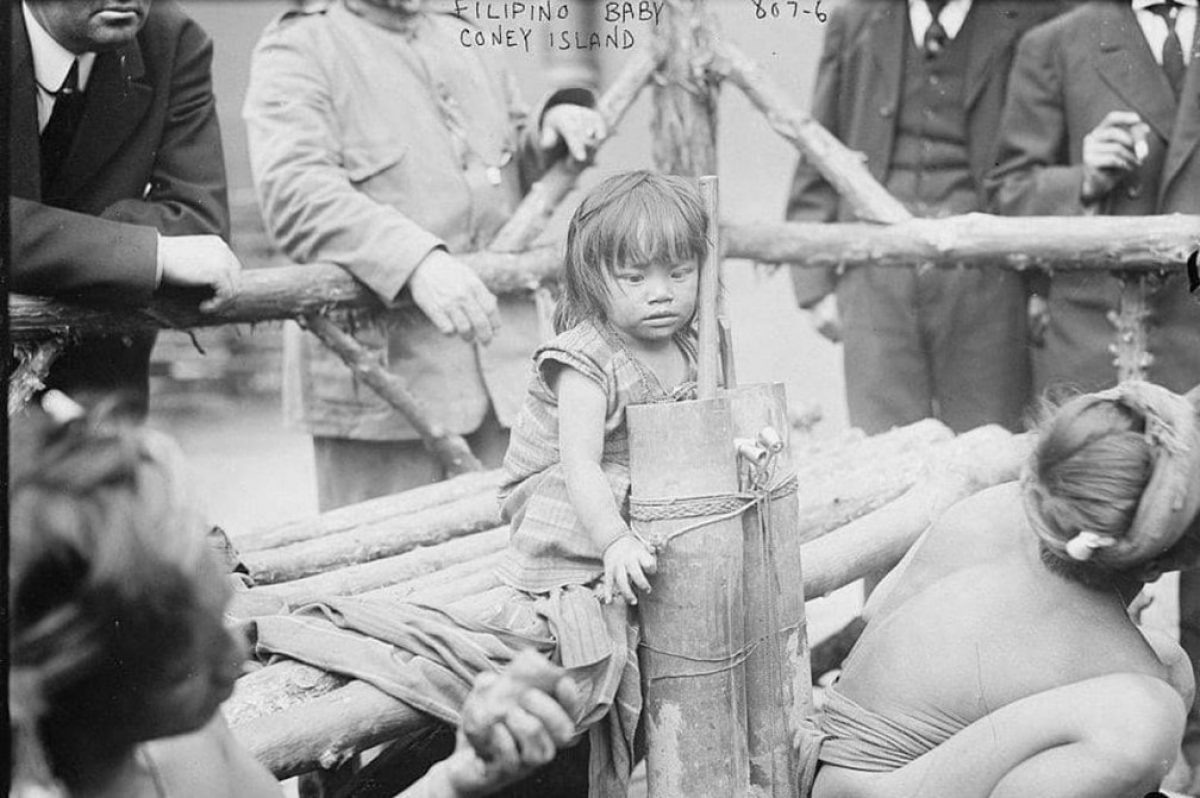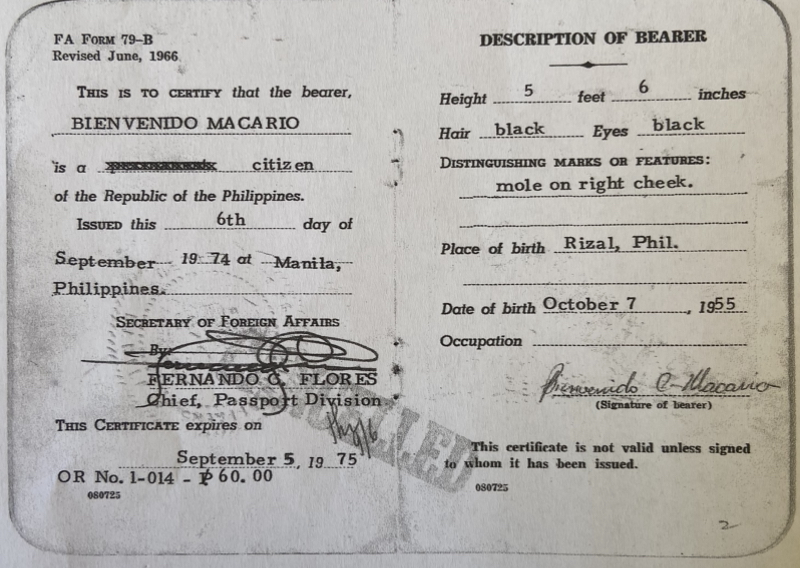A native of the Philippines, Ned Macario has the distinction of being one of the few people to be deported from his own country.
Below is the copy of his Travel Document issued “in lieu a regular Philippine passport”. Inside the document on the left page, it reads: “This is to certify that the bearer
BIENVENIDO MACARIO is a resident citizen of the Republic of the Philippines. The document expired a year after date of issue, meaning the bearer has one year to leave the Philippines.
Why was Bienvenido Macario (Ned) kicked out of his own country?
He referred to this WAIS post dated March 11, 2015 & entitled “WWII Attacks on US Soil: Philippines” (Francisco Ramirez, USA, 03/11/15)
https://waisworld.org/go.jsp?id=02a&objectType=post&o=92120&objectTypeId=77257&topicId=165
Francisco Ramirez writes:
“If we are talking about WWII-era attacks on US soil, let us not forget that Philippines was also conquered.”
John Eipper comments:
“Yes, Philippines was still officially part of the US during WWII. We do know that our friend Bienvenido Macario has NEVER recognized the legitimacy of the 1946 act (1946 Treaty of Manila) which granted the Philippines its independence.”
From: WWII Attacks on US Soil: Philippines (Francisco Ramirez, USA, 03/11/15) https://waisworld.org/go.jsp?id=02a&objectType=post&o=92120&objectTypeId=77257&topicId=165
He claims that the creation of the Philippine Commonwealth as a consequence of the Tydings-McDuffie Act of 1934 and the creation of the so-called republic of the Philippines in 1946 were unconstitutional, null and void, there being no referendum asking the Filipino people if they wanted to give up their American nationality; secede from the union with the United States of America and “be on the road to independence”(1934) or be independent in 1946. It should be noted that on July 26, 1941 FDR issued the Executive Order Placing Armed Forces of the Philippines Under United States Command, thus restoring the American nationality of Filipinos. On the same day, responding to Japanese occupation of key airfields in Indochina (July 24) after an agreement between Japan and Vichy France, the U.S. froze Japanese assets.

